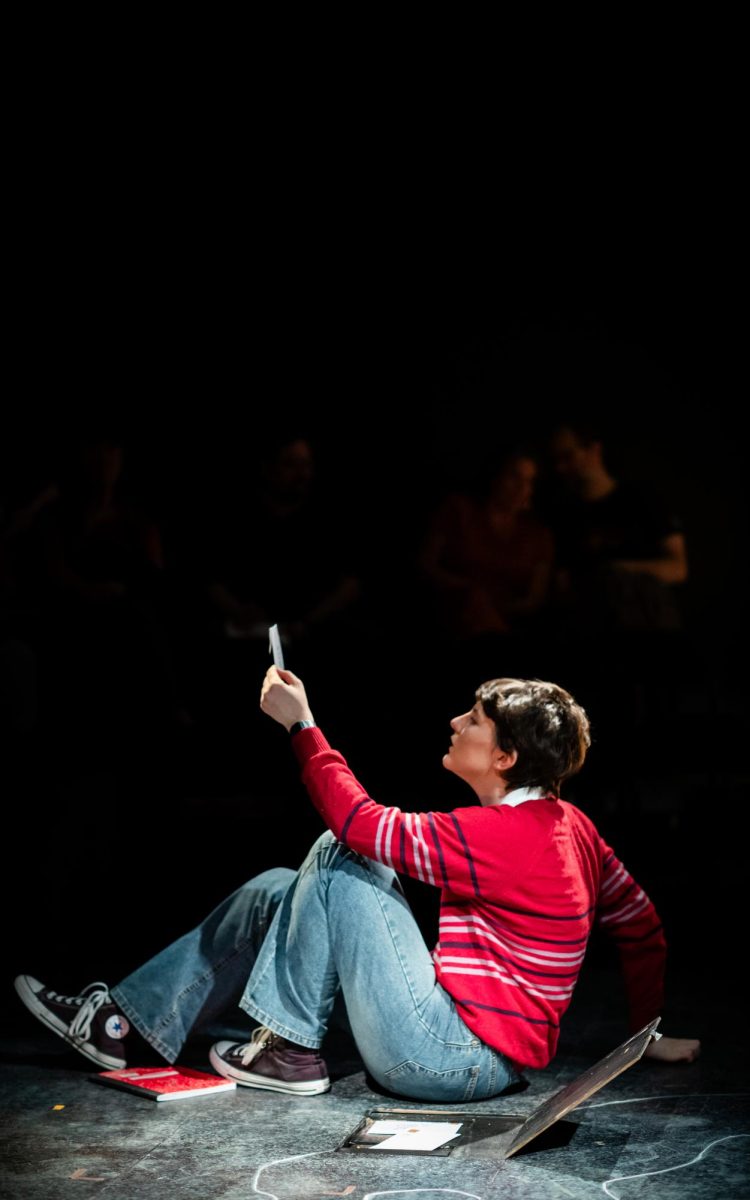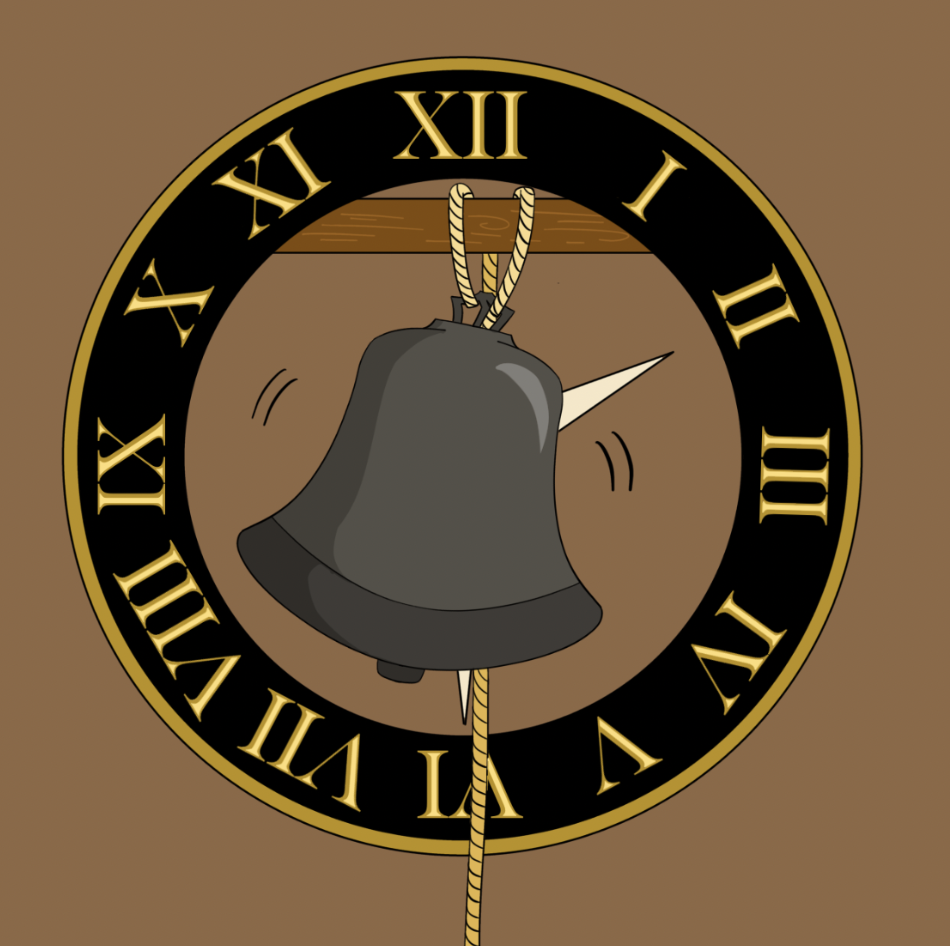This past fall’s play, The Curious Incident of the Dog in the Night-Time, was a play of many firsts: it was performed over Parents’ Weekend, co-directed by Laurie Sales and Erik Fox, and welcomed predominantly Lower School faces into the theater. But another critical component of the play involved the portrayal of a neurodivergent character, a feat that required extensive research and preparation for the Theater Department.
Christopher Boone, played by Harriet Mullins ’27, was the main character in The Curious Incident and, although never explicitly stated, was understood to be on the autism spectrum. This sparked initial concern among students within the Groton community as many were concerned about the possibility of leaning into stereotypes and inaccurate portrayals of Christopher’s character. Directors Laurie Sales and Erik Fox were aware of the concerns that people were raising and took steps to ensure that they were not only teaching actors the art of theater, but also educating them on what it meant to live life as someone on the spectrum.
When asked what initially drew her to the play, Ms. Sales said, “I was very excited to tell a story where the main character, who happens to be on the autism spectrum, has agency and voice. We wanted to just tell the story and let Christopher’s neurodivergence be one of many elements important to the play.”
But to pull off this portrayal, Harriet and Mr. Fox explained that they wanted to ensure they didn’t portray Christopher as a stereotype or caricature of his neurodivergence. “We did a lot of research,” Mr. Fox said, “I talked to various neurodiverse friends of mine so that I could try to get a picture of all the different ways to exist as a person on the spectrum.” Both Harriet and Ms. Sales noted how they read numerous articles written by people on the spectrum to avoid reducing Christopher’s character to simply being autistic.
While Ms. Sales and Mr. Fox initially decided to cut all of the suggestive stereotypes, such as moaning and groaning, they made the decision to include some moments where those stereotypes were portrayed. This portrayal did cause an initial wave of skepticism, but it was ultimately well-received by the audience. Natalie Sun ’25 said, “There’s definitely a line between mockery and a realistic portrayal, and Harriet acted in a way that made the audience empathize with Christopher and understand him better as a character.”
One scene that Ms. Sales mentioned required a particular sensitivity to execute was the tantrum scene, which she approached from a place of empathy: “As a parent of a neurodivergent child, I feel that there are some challenging truths that can be told on stage about how difficult it is for some neurodivergent people to process disappointment or broken expectations,” she said. “I did not think of this as a judgment. In fact, I sometimes go the other way, thinking about how sad it is that many of us are socialized to hide (or internalize) our personal moments of loss or pain or disappointment.”
Ms. Sales added that she did recognize the potential source of controversy surrounding this scene, so she attempted to “mellow the scene” by adding a loud sound effect to cover the sound of Christopher’s screaming. Ultimately, though, she wanted to ensure both the audience and Harriet were comfortable with the portrayal of Christopher’s emotions.
Ms. Sales concluded, “I love the entire process we went through and the care with which our ensemble addressed these kinds of challenges. That was one of the most valuable parts of putting this play together.”



